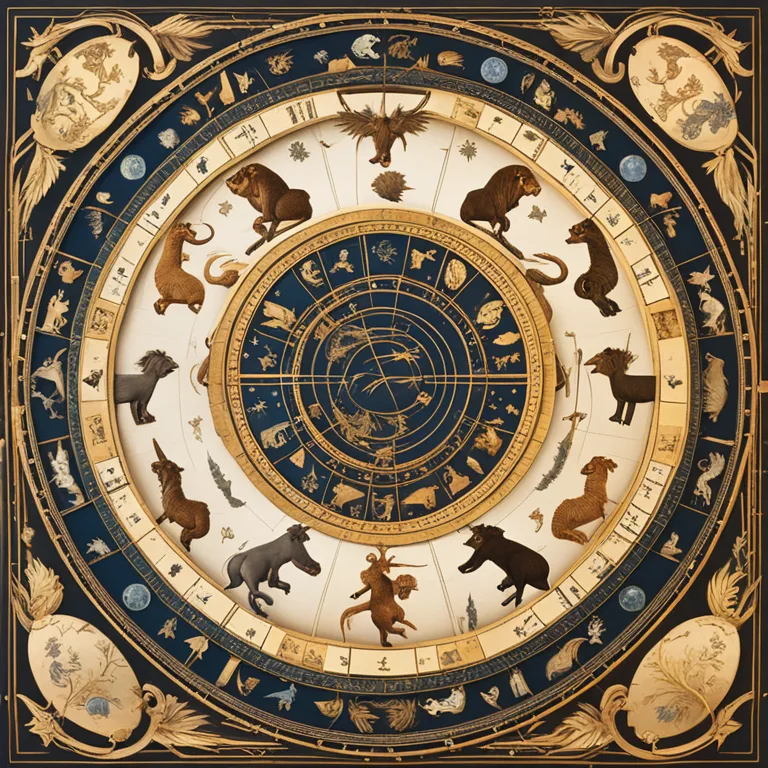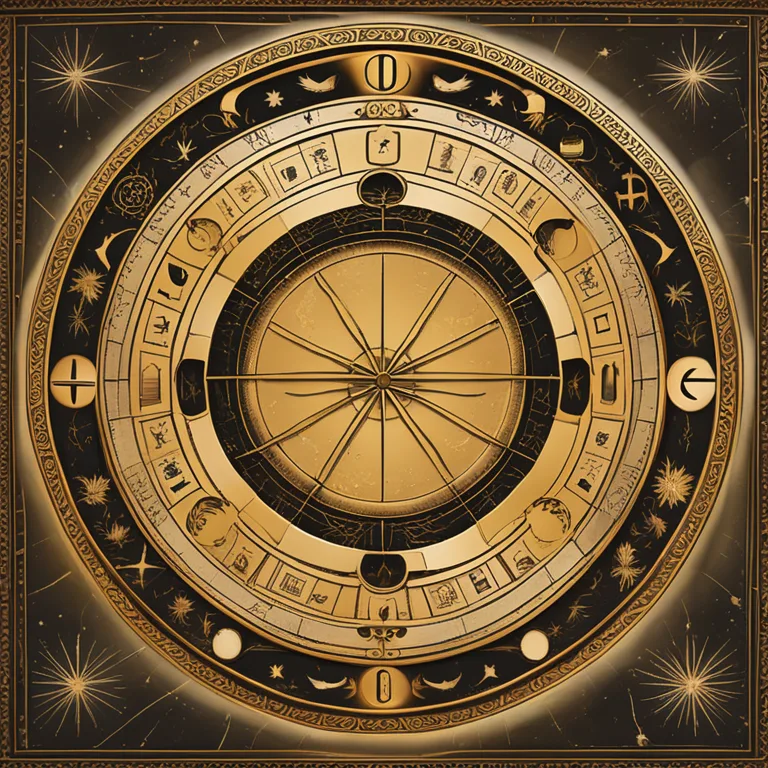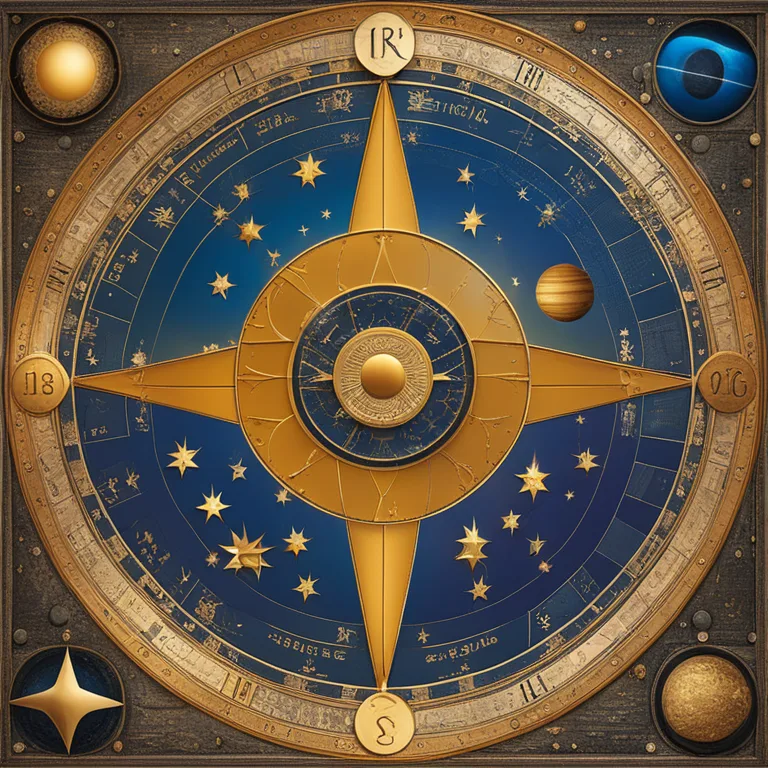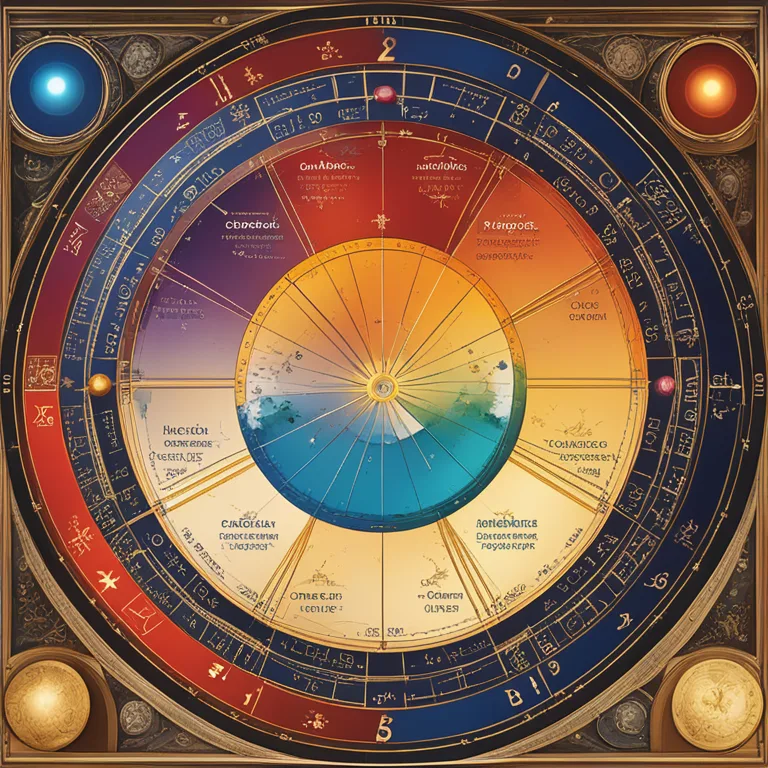
The Roots of Astrology: Etymology and Meaning
Dive into the etymology of astrology and discover the roots of this ancient practice that connects celestial patterns to earthly events.
article by Priya Deshmukh
The Origin of 'Astrology'
The term astrology is derived from the Greek words "astron" meaning 'star' and "logos" referring to 'word' or 'reason'. Astrology, therefore is the 'study of stars', a discipline where the positions and movements of celestial bodies are believed to have an impact on human affairs and natural phenomena. Tracing back to Babylonian traditions, astrology has evolved through the Hellenistic period into what we are familiar with today.

Ancient Practices and Astrological Systems
Astrology's journey through history saw it being shaped by various cultures, including the Babylonians, Egyptians, and Greeks. Each added their own interpretation and methodology, with the Greeks notably laying down the foundation for Western astrology. The zodiac and planetary classifications are largely attributed to Greek influence, where insight into personality based on celestial movements became prominent.

The Zodiac and Its Impact
The zodiac, central to astrology, is also etymologically rooted in Greek; "zōidiakos" means 'circle of animals'. It reflects the constellation patterns and is divided into twelve signs, each offering future insights and character analyses in astrological traditions. With the precession of equinoxes, astrology has adapted to ensure the relevance of signs and predictions for the year 2024 and beyond.

From Horoscopes to Natal Charts
The horoscope, another core element in astrology, stems from "hōra" meaning 'time' and "skopos" indicating 'observer'. It represents an astrological chart or diagram representing the positions of the Sun, Moon, planets, and astrological aspects at specific events, such as an individual's birth. The birth chart continues to be a key tool in making individualized predictions and compatibility assessments in astrology.

Modern Astrology and Its Evolution
As we look forward to 2024 and beyond, astrology continually incorporates astronomical discoveries and societal changes into its practice. While skeptics question astrology's scientific standing, its popularity endures due to its reflective and often therapeutic effects on individuals seeking guidance or self-understanding. These personal insights often resonate deeply, keeping astrology alive and relevant in modern times.
Compatibility and Relationships
The study of compatibility within astrology examines how the positions of stars and planets align to predict the potential harmony between individuals. With newer approaches to astrological compatibility and evolving relationship dynamics, astrologers are now creating forecasts that cater to a wide array of partnership structures, reflecting the diverse nature of relationships in contemporary society.
Published: 12/29/2023
Modified: 12/29/2023
More predictions
Come back here soon to learn more about yourself and your future


Unlocking The Impact of Astrological Transits
Gain insights into the dynamic realm of astrological transits and how they influence personal horoscopes and life events.


Astrology Signs Compatibility Guide
Discover which astrology signs are most compatible for love and friendships in this comprehensive compatibility guide.


Moon's Zodiac Position Today
Discover which astrological sign hosts the Moon today and learn how this celestial body influences your daily horoscope, emotions, and compatibility.